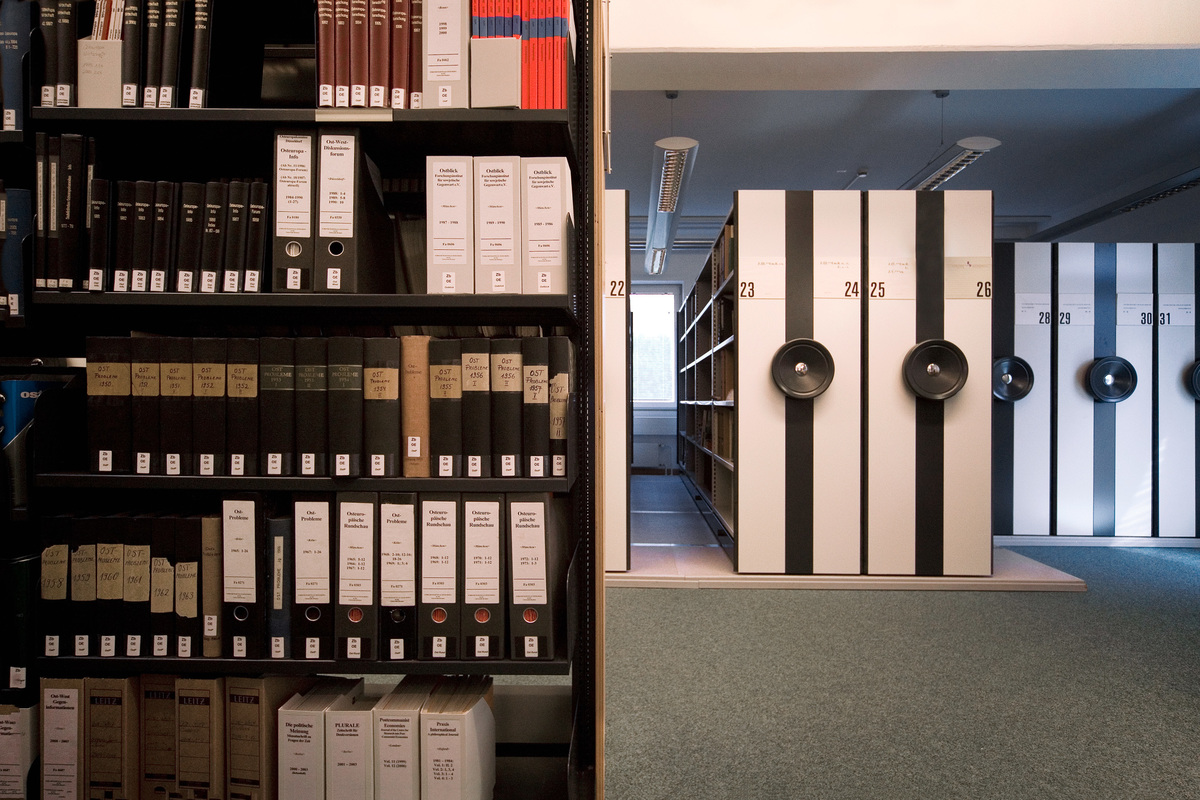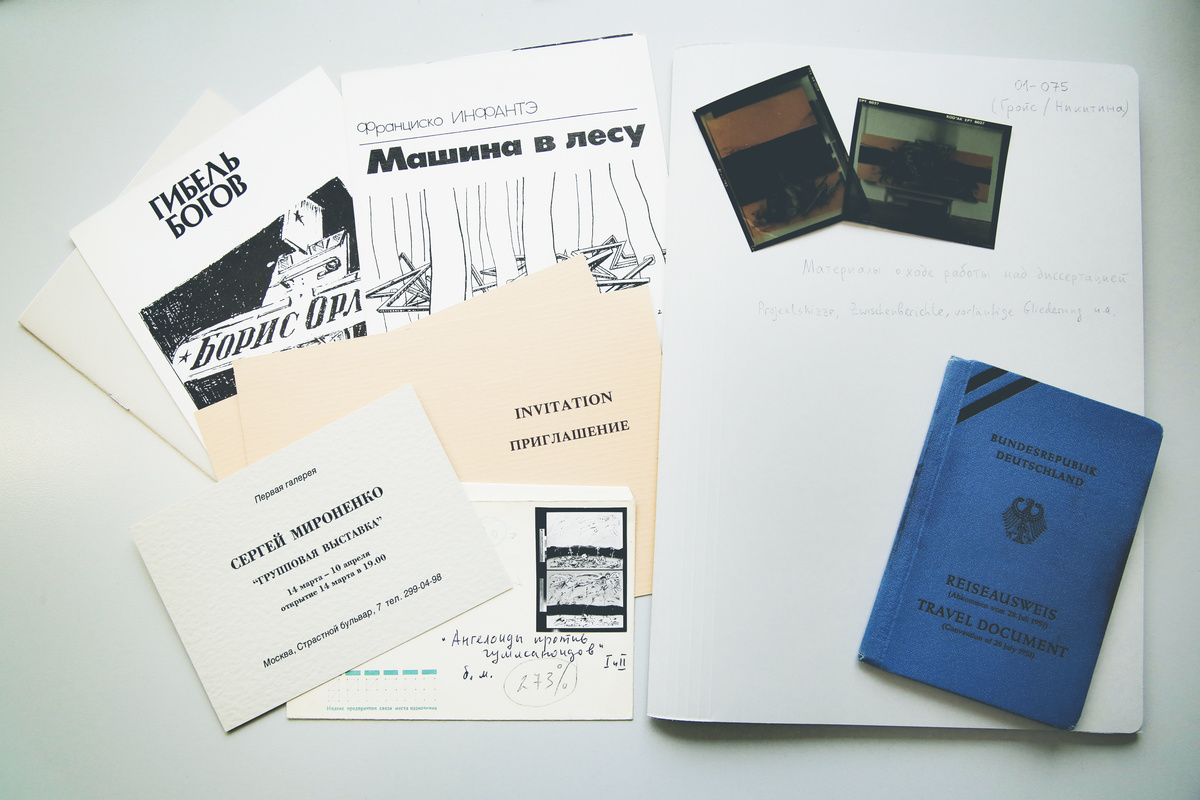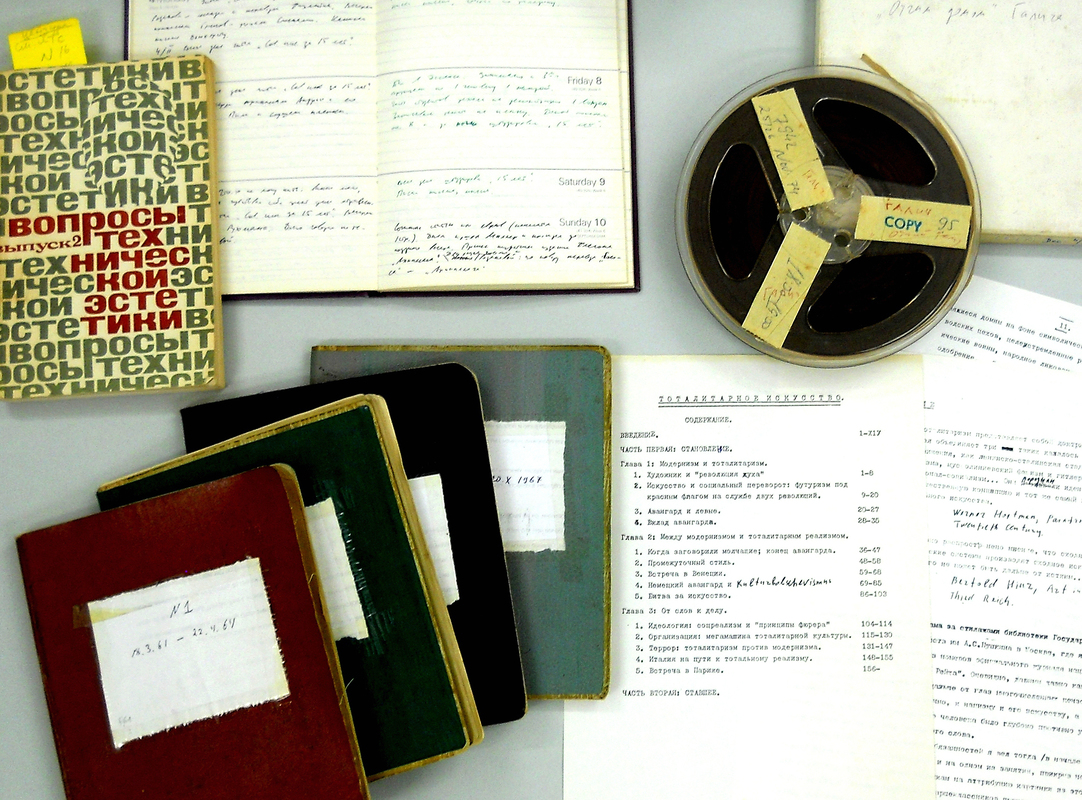The Research Centre for East European Studies (Forschungsstelle Osteuropa), Germany
The Research Centre for East European Studies at the University of Bremen was founded in 1982. Its archive collection was formed with a focus on samizdat and other materials that reflected the life and work of dissidents in the former Soviet countries, Czechoslovakia, Poland, Hungary, and the German Democratic Republic. Today it combines two goals: the (re)examination of societies and cultures in these regions and the analysis of contemporary developments in the post‑Soviet space.
The section on the Soviet Union and its successor states comprises over 600 personal archives, including those of Soviet Nonconformist artists, writers, and poets such as Anna Alchuk, Anatoly Brusilovsky, Eduard Gorokhovsky, Igor Golomshtok, Michail Grobman, Boris Groys and Natalia Nikitin, Boris Zaborov, Lev Nussberg, Sergei Sigei and Rea Nikonova, Genrikh Sapgir, and Igor Kholin. It includes a large archive collected by German historian and expert in Slavic cultures Karl Eimermacher, which includes materials from Vadim Sidur. The Centre’s archive also contains materials from the Moscow Archive of New Art (MANI) and A‑Ya art journal, and photographs documenting life in the artistic circles of Moscow, Leningrad, and Paris. All personal archives of the Soviet section will be studied for art‑related materials as part of the RAAN project.
The Central East European section keeps testimonies of political, religious, and artistic dissent after 1945. Extensive materials from the Polish trade union Solidarnosc and the opposition movement from 1976–1989 are of particular importance. The Czechoslovakian collection consists of an extensive library of books from underground publishing houses and personal papers of the photographer Ivan Kyncl and the dissident artist Karel Trinkewitz. Of particular importance is Klaus Groh’s collection of Central and East European art. Groh was involved in the mail art movement in the 1970s and handed over 120 boxes containing publications by informal artists, demonstrating the surprising intensity of transnational art networks during the Cold War. A small GDR collection comprises artistic samizdat and the writings of Christian activists.
Klagenfurter Straße 8,
D-28359 Bremen
Germany


